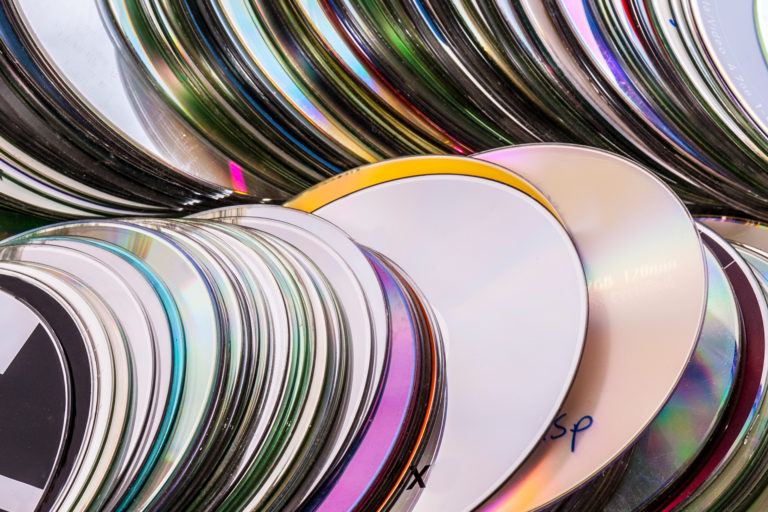
Quick Tips
You dust off an old CD, pop it into your player, and—nothing but skips, glitches, or complete silence. Before you assume it’s a lost cause, take a closer look. Smudges, fingerprints, and scratches could be messing with your tunes or movies. But don’t panic! Cleaning a CD properly can often restore playback without damaging the disc.
Why Cleaning CDs Properly Matters
Unlike digital music or streaming, CDs rely on a laser reading data from a physical surface. Even minor dirt, oil, or scratches can disrupt playback, making your favorite albums or games unplayable. Cleaning a CD the wrong way (like using paper towels or wiping in circles) can actually make things worse by adding micro-scratches. Using the right techniques keeps your discs readable, playable, and scratch-free.
What You’ll Need to Clean a CD
Before getting started, gather these safe cleaning supplies:
- Microfiber cloth – Prevents scratches while cleaning.
- Distilled water – Avoids mineral buildup.
- Mild dish soap – Helps remove greasy fingerprints.
- Isopropyl alcohol (90% or higher) – Evaporates quickly and removes tough grime.
- Cotton swabs – Useful for spot cleaning.
- Toothpaste (non-gel, baking soda-based) – Helps buff out minor scratches.
- Banana peel (yes, really!) – Contains natural oils that fill in fine scratches.
How to Clean a CD in 5 Steps
1. Rinse and Remove Surface Dust
Before wiping the CD, rinse it gently under lukewarm distilled water. This removes loose dust particles that could cause scratches during cleaning. Avoid hot water, as extreme temperatures can warp the disc. If there’s stubborn dirt, add a drop of mild dish soap and rub gently with your fingers. Never scrub aggressively—CDs have a delicate data layer that’s easily damaged.
2. Wipe from the Center Outward (Not in Circles!)
Using a microfiber cloth, wipe the CD from the center hole straight to the edge in a straight line. Never use circular motions, as this can cause radial scratches that interfere with laser reading. For tougher smudges, dampen the cloth slightly with isopropyl alcohol (not regular tap water) to lift grime without leaving residue.
3. Spot Clean Stubborn Smudges with a Cotton Swab
For oily fingerprints or sticky residue, dip a cotton swab in isopropyl alcohol and dab the affected area gently. Let it dry completely before testing the disc. Alcohol evaporates quickly, so it won’t leave moisture behind that could damage the data layer.
4. Buff Out Scratches with Toothpaste or Banana Peel
If your CD still skips or stutters, minor scratches might be interfering with playback. Try these unconventional but effective fixes:
- Toothpaste method: Apply a tiny amount of non-gel toothpaste (preferably baking soda-based) to a soft cloth. Buff the scratch in straight lines from the center outward, then rinse with distilled water and dry.
- Banana peel method: The natural oils in a banana peel can temporarily fill in micro-scratches. Rub the inner side of the peel over the scratched area, then wipe clean with a microfiber cloth.
These methods won’t fix deep gouges, but they can smooth out small scratches enough to restore playback.
5. Test the CD and Store It Properly
Once the CD is clean and dry, test it in your player. If it still skips, try playing it in another device—sometimes, a different laser reader can bypass minor issues. To prevent future damage, always store CDs in their cases, away from direct sunlight, heat, and moisture. Avoid stacking them without protection, as this leads to scratches and warping.
How Professionals Restore CDs
If DIY cleaning doesn’t work, professionals use advanced methods to repair discs, including:
- Professional resurfacing machines – Buff out deeper scratches without harming the data layer.
- Industrial-grade cleaning solutions – Remove stubborn residue without leaving streaks.
- Data recovery services – Extract files from severely damaged discs.
If your CD is valuable, consider taking it to a disc repair service before trying aggressive DIY fixes (CD repair and resurfacing guide).
How Often Should You Clean CDs?
- When dirty or skipping: Clean as needed to restore playback.
- Regular maintenance: Wipe down discs before storage if handled frequently.
- Avoid over-cleaning: Excessive scrubbing can wear down the protective layer.
Final Thoughts
Cleaning a CD the right way can restore lost music, movies, or game data and extend the life of your collection. Always use gentle, non-abrasive methods to avoid permanent damage.
For more cleaning tips, check out How to Clean a CD-ROM Drive. Keep your discs and players in top shape!